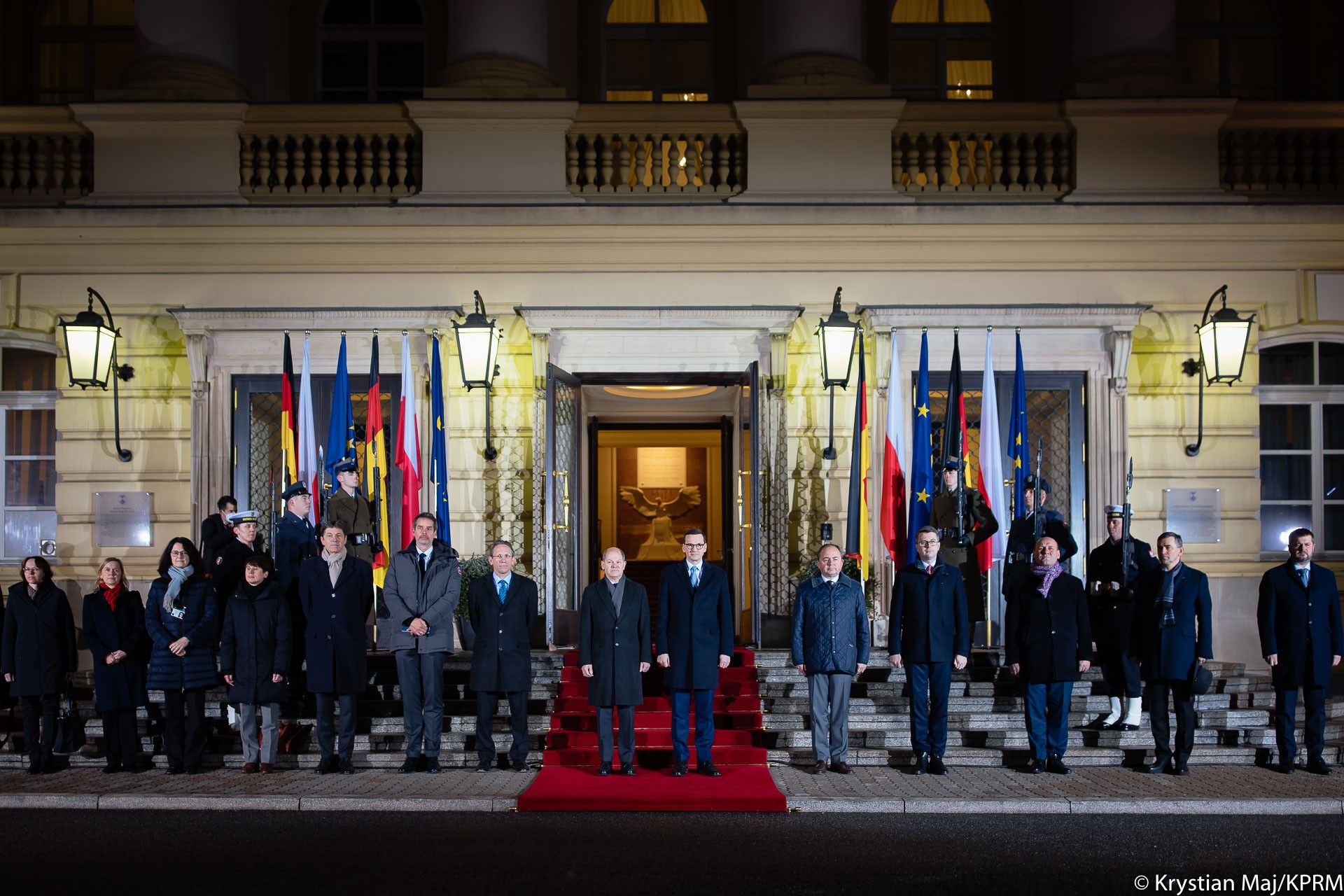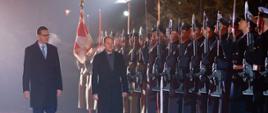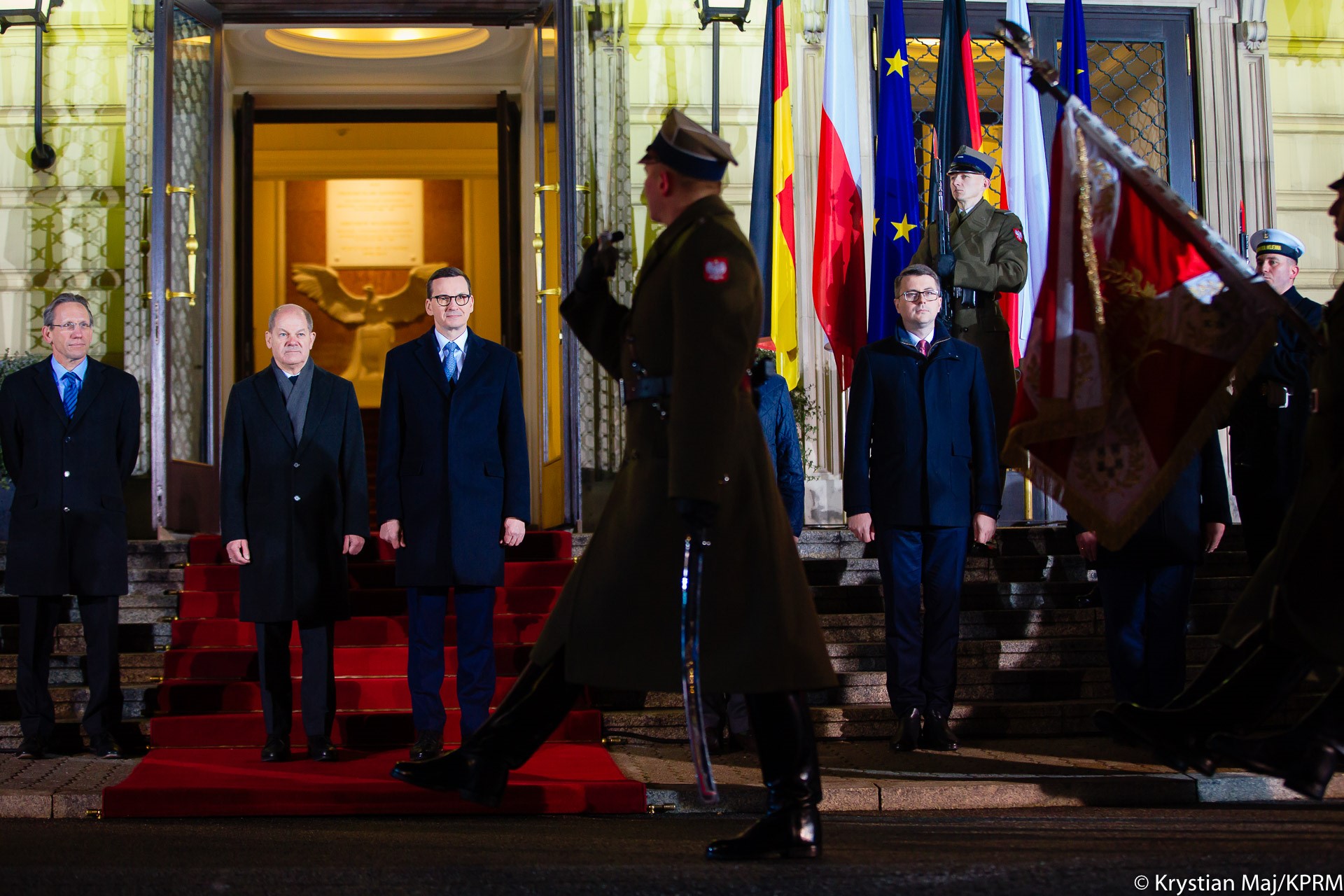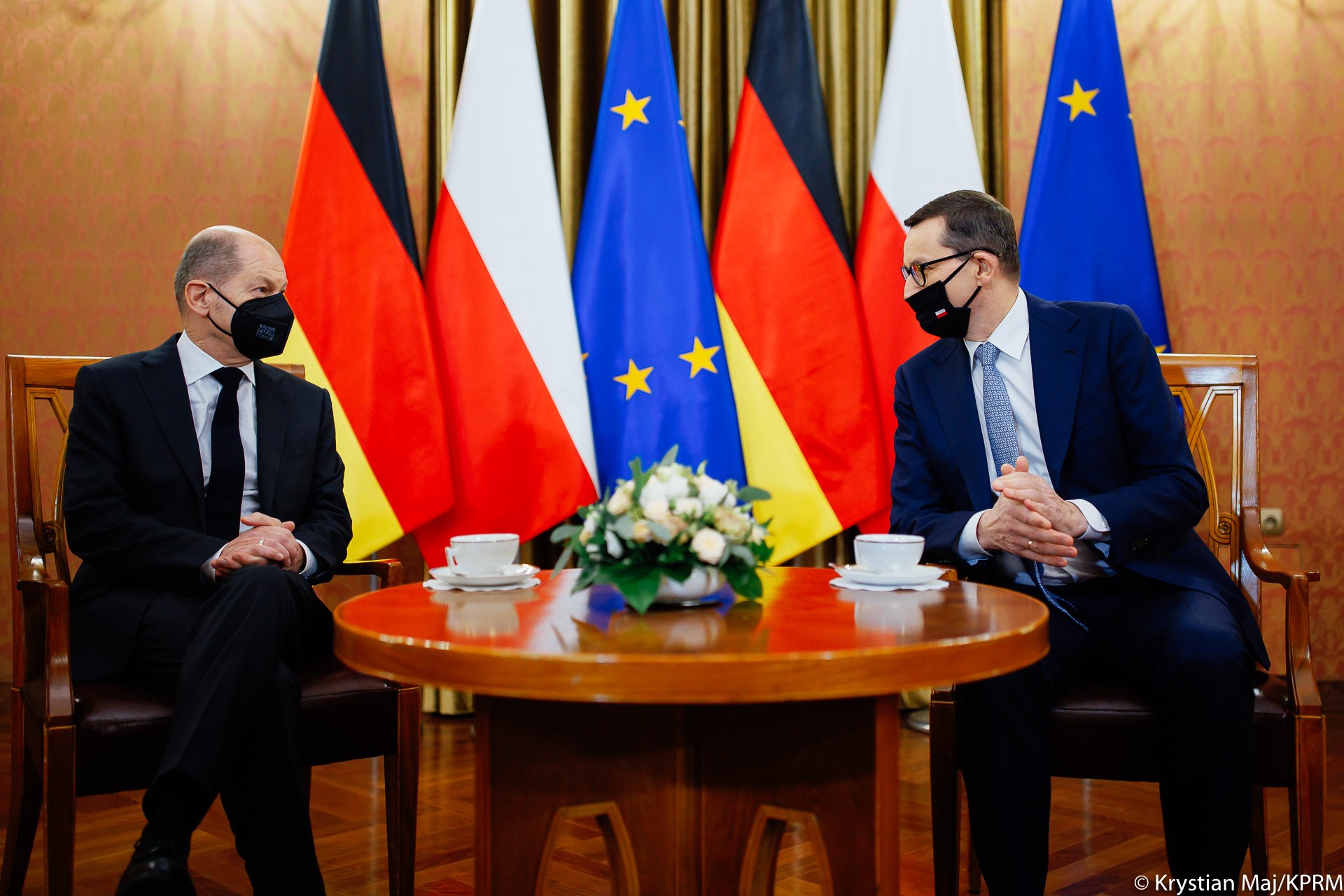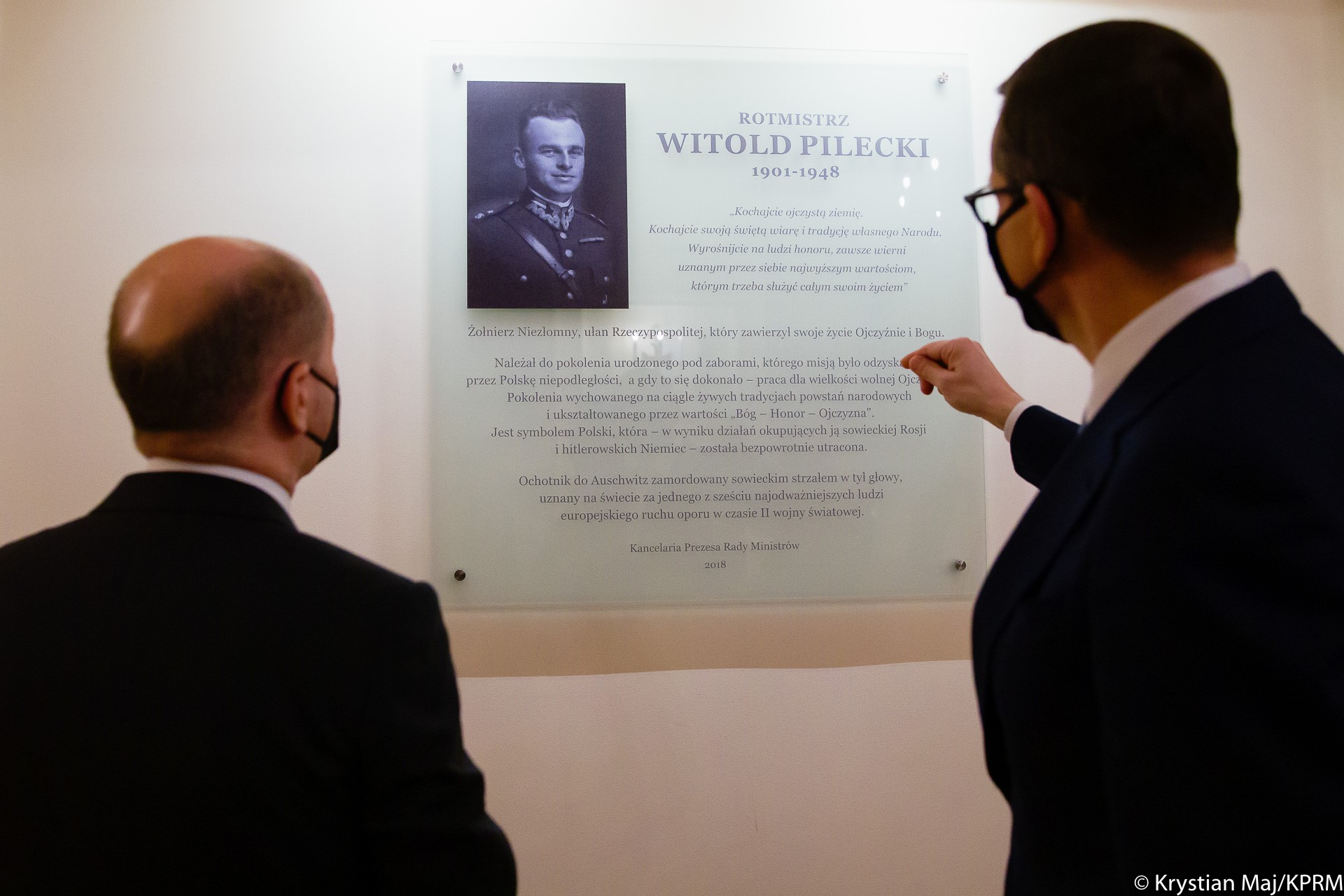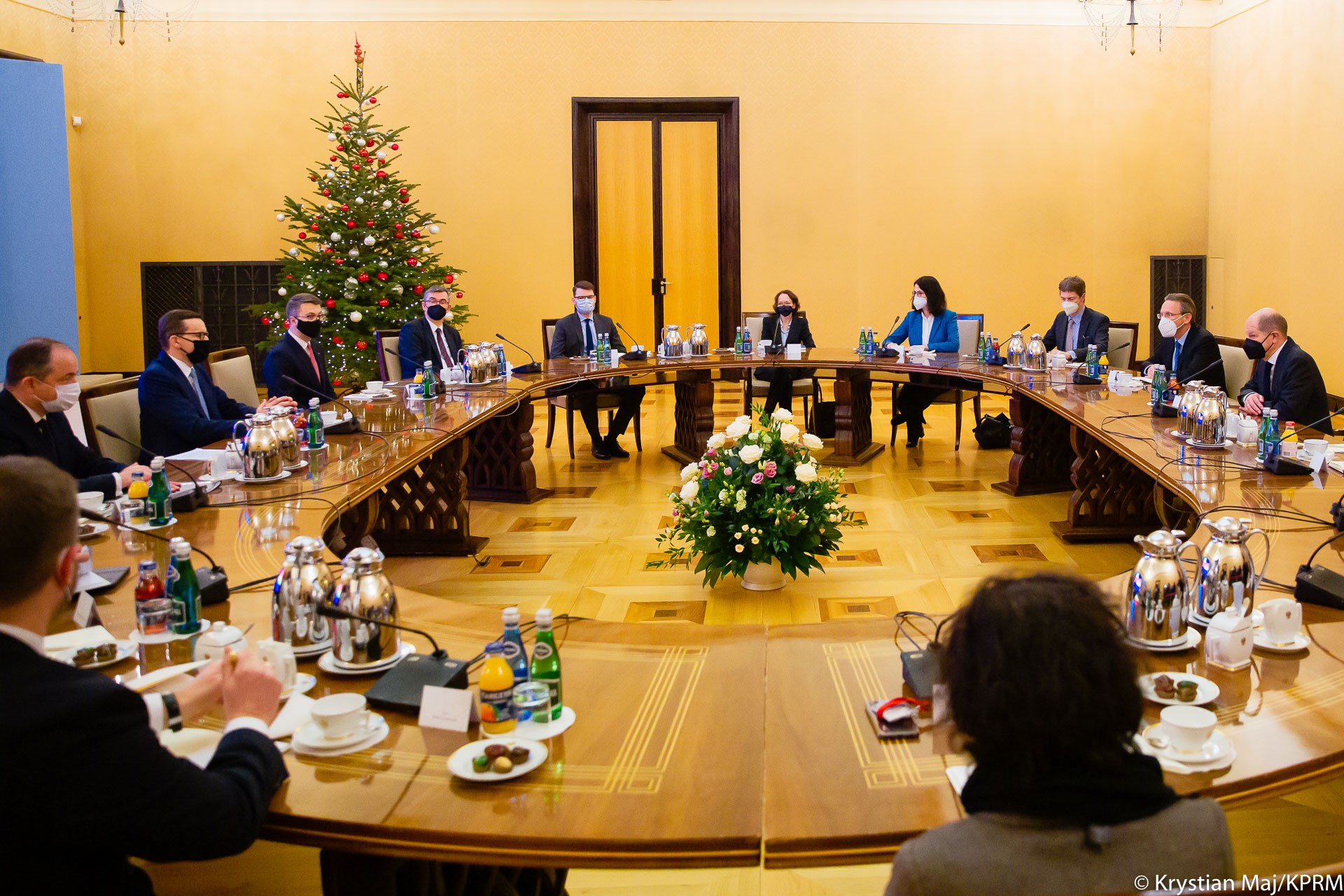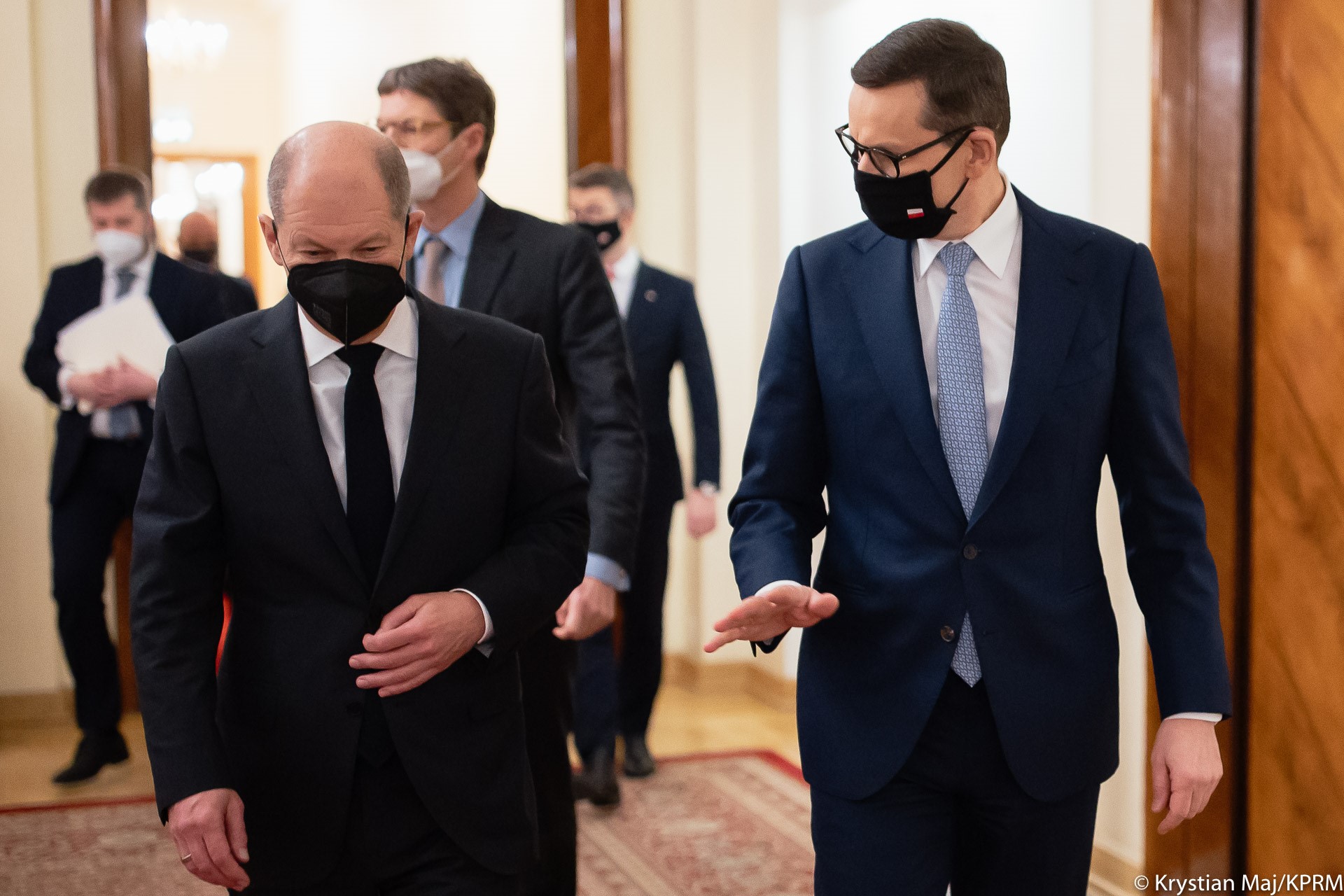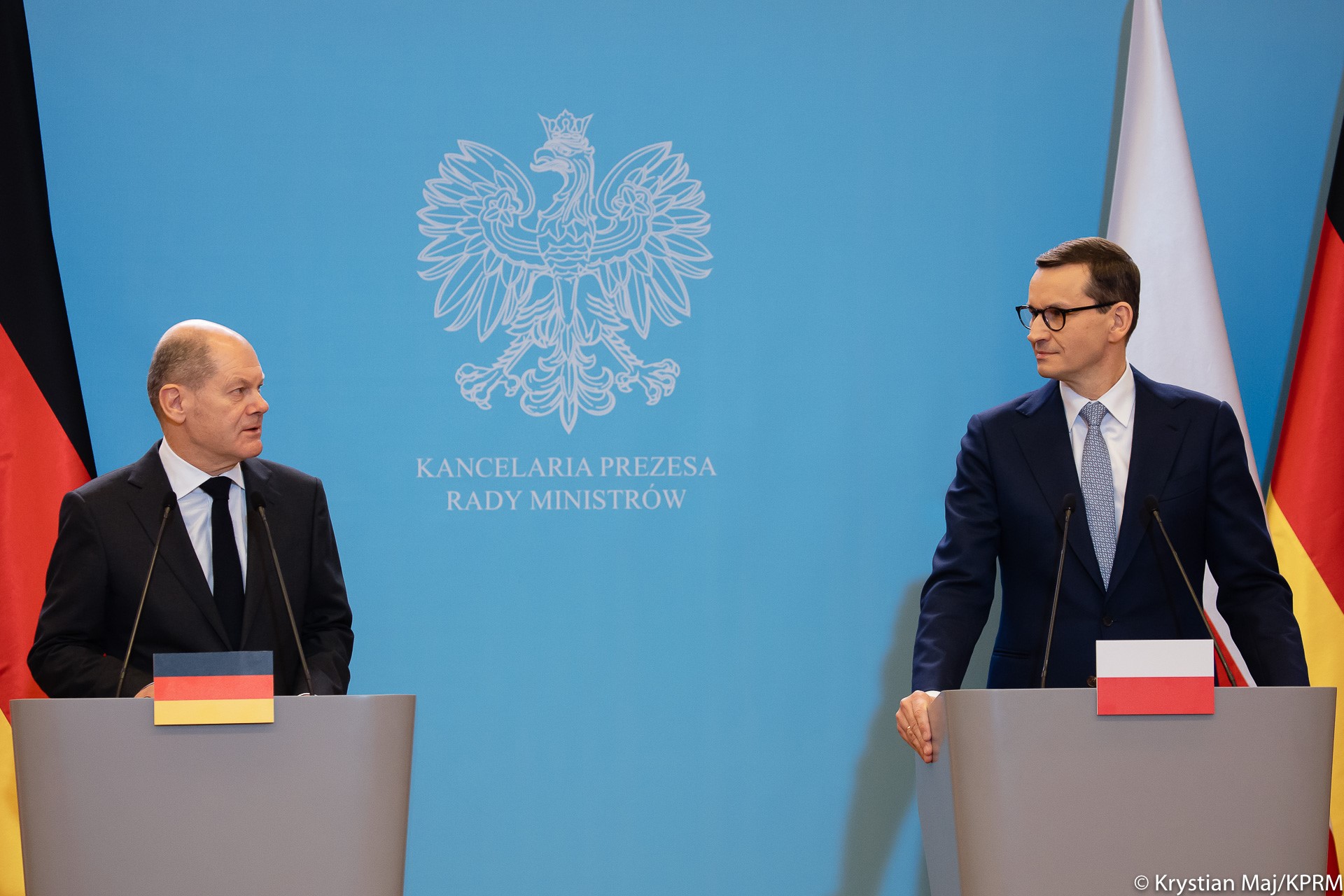Change of government in Germany opens a new chapter in Polish-German relations, says Prime Minister Morawiecki after meeting with Germany’s new Chancellor
12.12.2021
Prime Minister Mateusz Morawiecki met with German Chancellor Olaf Scholz. After Paris and Brussels, Warsaw was the third European capital visited by the newly appointed head of the German government. At the first official meeting with Mr Scholz, Prime Minister Morawiecki emphasized that the appointment of a new government across Poland’s western border also marks a new chapter in Polish-German relations. The talks focused primarily on common challenges – including the situation on the eastern border of the European Union and in Ukraine, as well as EU affairs, energy issues and further Polish-German cooperation.

Situation on EU’s eastern border
Among the main topics of the Warsaw meeting was the situation on the Polish-Belarusian border of the European Union. “We talked about our eastern border, which serves as the border of both the European Union and NATO. I introduced the Chancellor to the changing tactics employed by the Lukashenko regime as part of the current artificially induced migration crisis, as well as the use of people as human shields and weapons”, Prime Minister Morawiecki explained.
Mr Morawiecki also emphasized that the EU border must remain tight so that the Community can defend itself and determine its future fate on its own. The new German Chancellor expressed his support and solidarity with Poland. “These hybrid warfare actions must cease, and we will support Poland in facing these challenges”, said Mr Scholz.
Current situation in Ukraine and Nord Stream 2 controversy
While discussing the threats originating from the East, Mr Morawiecki and Mr Scholz also spoke about the current situation in Ukraine. PM Morawiecki noted that Ukraine – Poland’s eastern neighbour – has found itself in a difficult situation, which would be further exacerbated by the possible opening of Nord Stream 2. The head of the Polish government also remarked that it is not only Ukraine but also Poland and other eastern European countries that would be affected by the launch of Nord Stream 2. “This is why we are building the Baltic Pipe – we are becoming independent from Russia. Yet Ukraine is entirely dependent on Russian gas, and to a large extent, other energy sources”, he added.
German Chancellor Olaf Scholz also commented on the situation. “We are aware of dangerous actions being taken there. As such, it is evident that Europe must make it clear that this will not be accepted. The integrity of European borders is something that we emphasize together as the European Union. We must ensure that undermining territorial integrity is something we will never accept”, said Mr Scholz.
Energy issues
Other topics discussed during Mr Scholz’s visit included energy issues. Prime Minister Morawiecki said that the talks concerned the European Union energy market. “Based on the coalition agreement concluded between the Chancellor and his partners, I know that climate policy is an absolute priority for Germany. However, we point to its elements that cause problems for people – today, energy is becoming increasingly expensive. The gas blackmail leads to higher inflation and an increase in prices for ordinary households. We do not want people to suffer due to such changes”, he remarked.
Mr Morawiecki also explained that during the next meeting of the European Council he would raise the issue of CO2 emission allowance prices since the ETS system is one of the reasons behind the rising energy prices.
Polish-German cooperation
The first official meeting with the new German Chancellor also served as an opportunity to discuss bilateral cooperation. “It is vital to me that I was able to visit Poland and meet with Prime Minister Morawiecki within the first week of taking office. We have already talked recently in Germany, and it is good that we can continue these talks today as government heads and lay the foundations for good cooperation between Poland and Germany”, stressed Chancellor Olaf Scholz.
Among the topics discussed by Mr Morawiecki and Mr Scholz were issues related to equal treatment and mutual consideration – including learning Polish in Germany and learning German in Poland. Other matters of interest included economic affairs. “I am strongly encouraged by the growing economic, trade and investment relations between Poland and Germany. The scale of this contact is increasing, even at the level of small and medium-sized enterprises. Germany is Poland's most important trading partner. For Germany, Poland ranks as the 4th or 5th trade partner. The Visegrad Group remains Germany’s No 1 partner”, Mr Morawiecki explained.
New head of German government
Chancellor Olaf Scholz is a Social Democrat and his party – SPD – won the September parliamentary elections and proceeded to form a government along with the Greens and the FDP. In the previous government led by Angela Merkel (CDU), Mr Scholz served as Vice-Chancellor and Minister of Finance. On 8 December 2021, he was elected Chancellor by the Bundestag, receiving 395 votes and thus exceeding the required 369-vote majority (the SPD-Greens-CDU government coalition has 416 deputies out of Bundestag’s total 736 deputies). Olaf Scholz is the fourth head of government originating from the SPD and the ninth Chancellor of Germany elected since 1949.
“I would like to clearly state that it is very important to us to design the neighbourship with Poland in a friendly manner. (...) Poland is a great nation, a democracy. I am very glad that Poland is part of our European Union community, and we can agree on common issues there, and sometimes even argue, thus building our future together”, said Mr Scholz after the SPD, the Greens and the FDP signed the coalition agreement on 7 December 2021.

